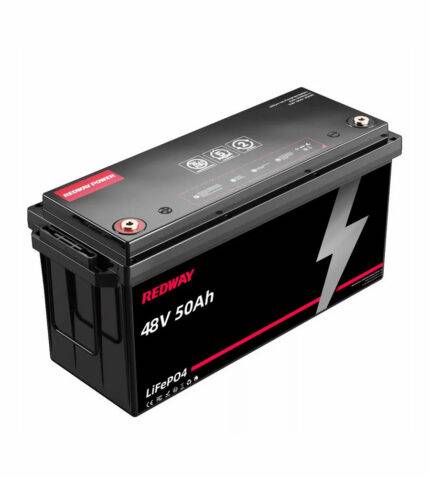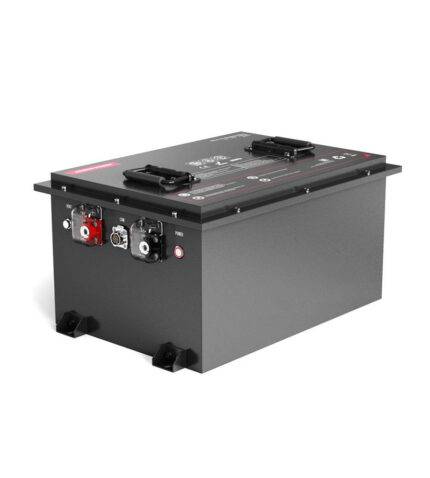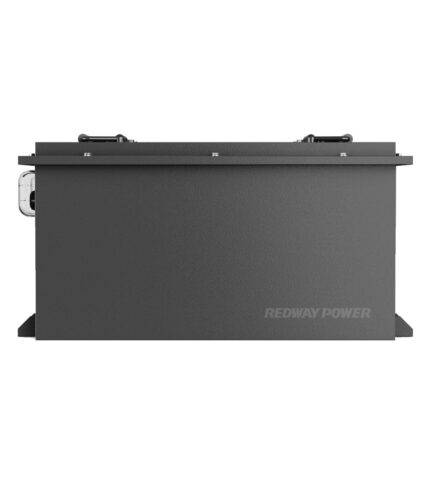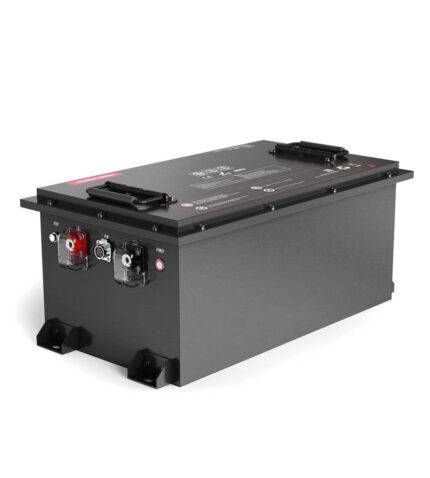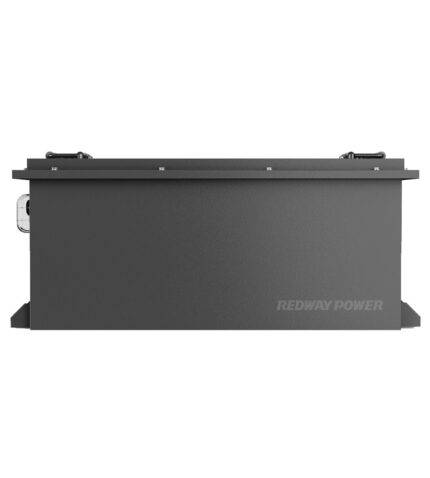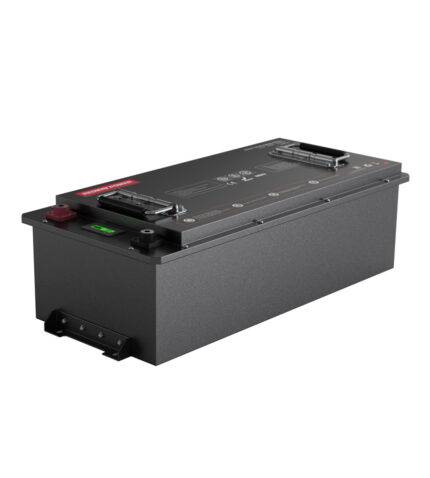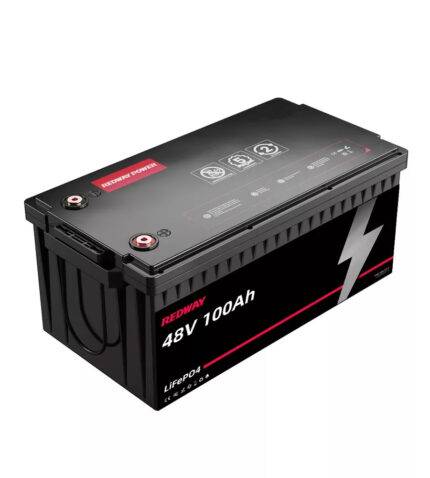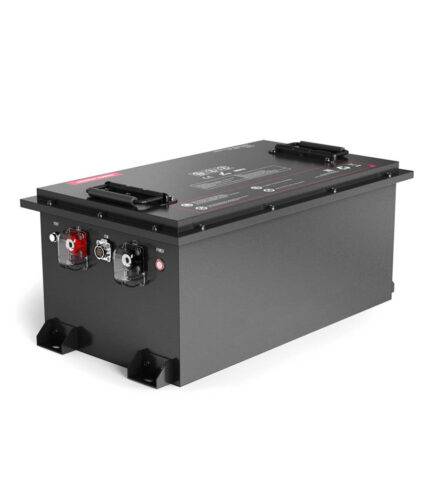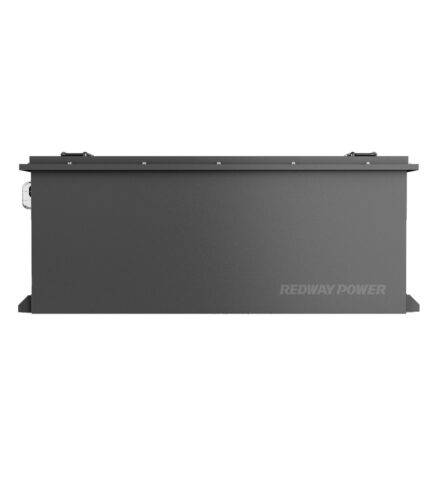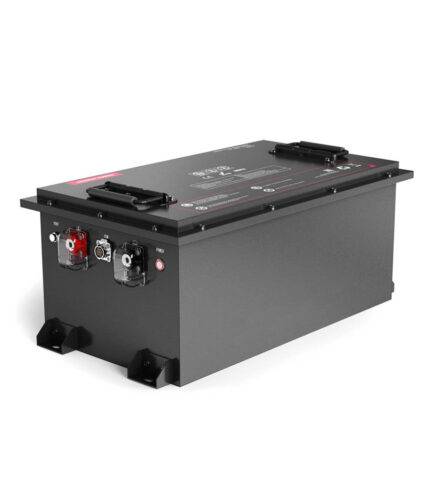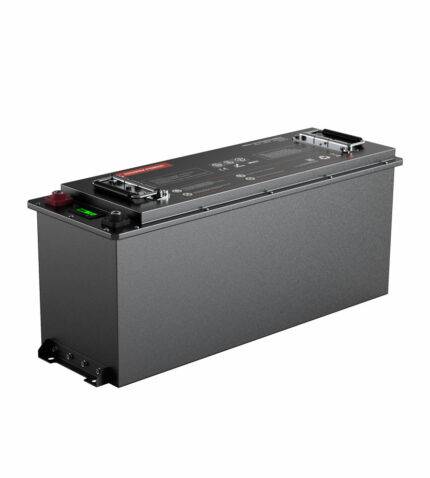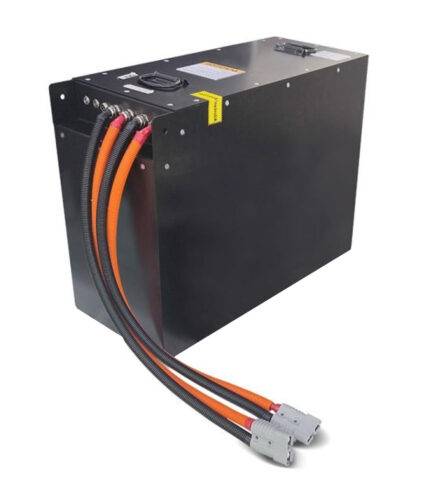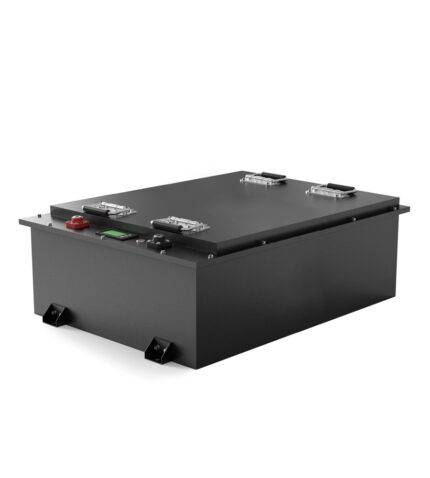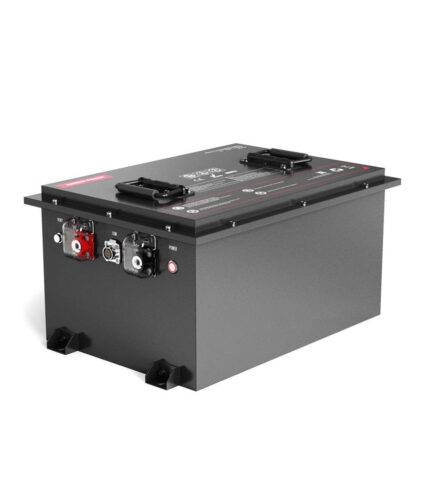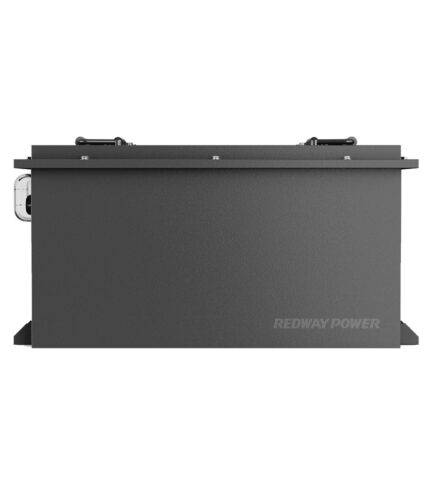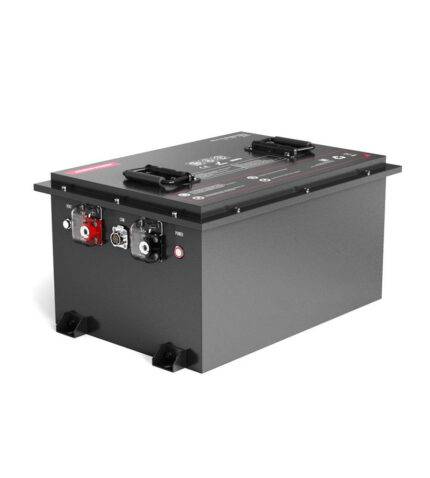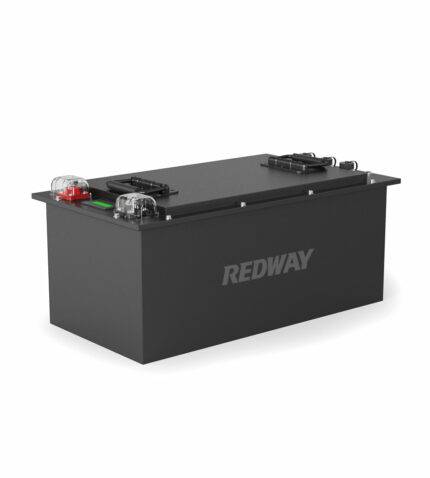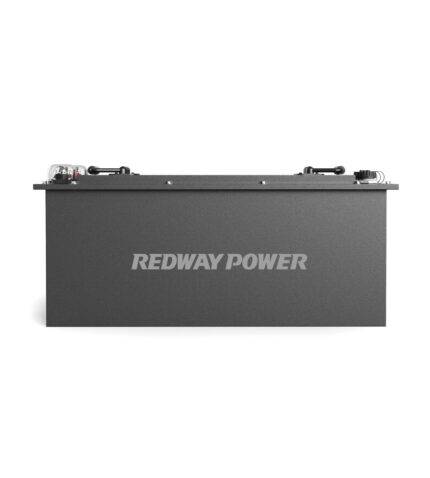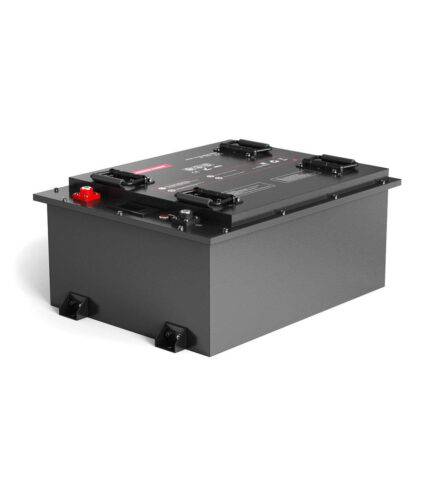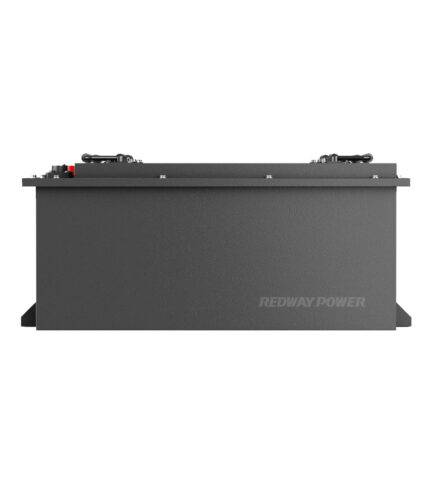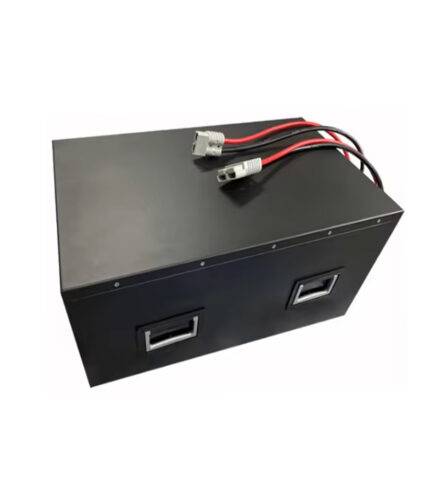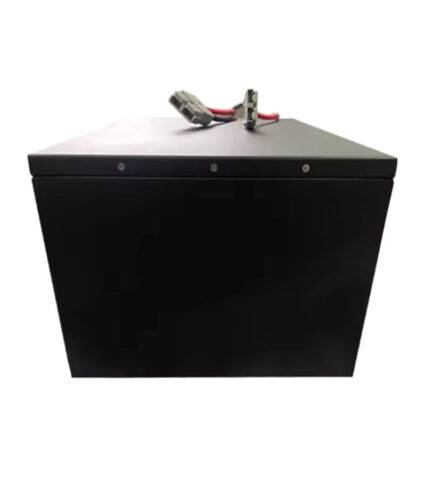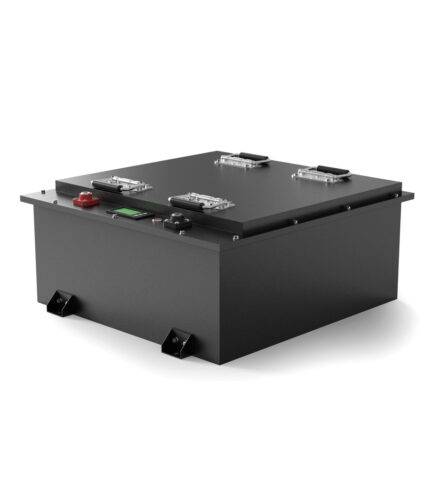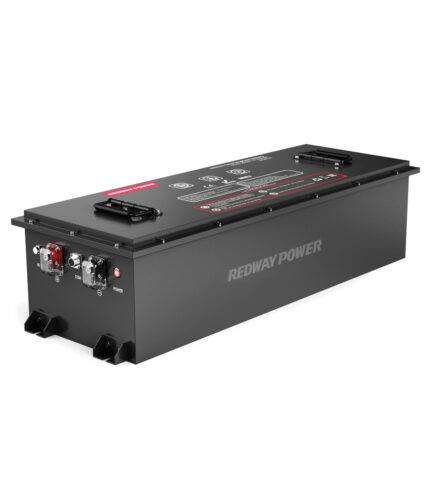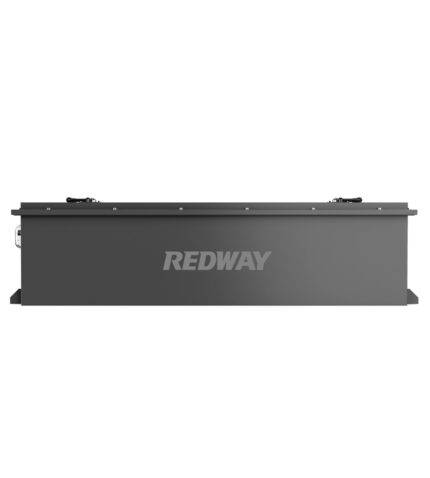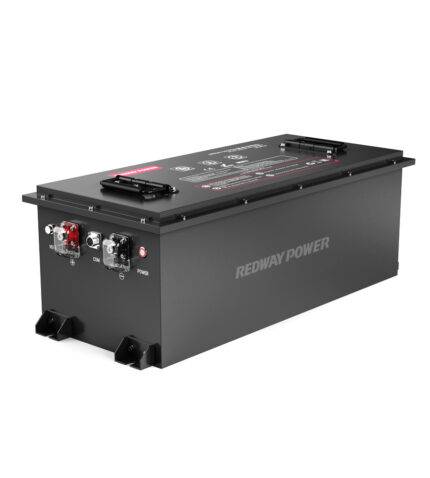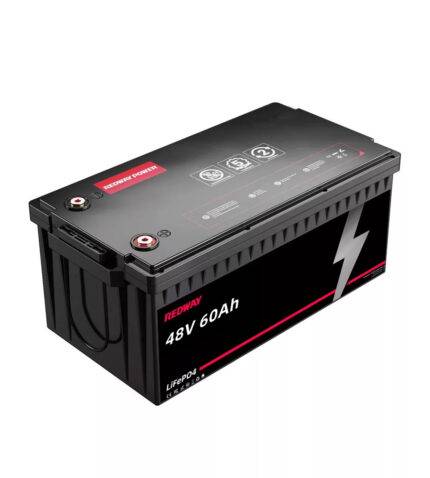- Forklift Lithium Battery
-
48V
- 48V 210Ah
- 48V 300Ah
- 48V 420Ah (949 x 349 x 569 mm)
- 48V 420Ah (950 x 421 x 450 mm)
- 48V 456Ah
- 48V 460Ah (830 x 630 x 590 mm)
- 48V 460Ah (950 x 421 x 450 mm)
- 48V 460Ah (800 x 630 x 600 mm)
- 48V 460Ah (820 x 660 x 470 mm)
- 48V 500Ah
- 48V 560Ah (810 x 630 x 600 mm)
- 48V 560Ah (950 x 592 x 450 mm)
- 48V 600Ah
- 48V 630Ah
-
48V
- Lithium Golf Cart Battery
- 12V Lithium Battery
12V 150Ah Lithium RV Battery
Bluetooth App | BCI Group 31
LiFePO4 Lithium
Discharge Temperature -20°C ~ 65°C
Fast Charger 14.6V 50A
Solar MPPT Charging - 24V Lithium Battery
- 36V Lithium Battery
- 48V Lithium Battery
-
48V LiFePO4 Battery
- 48V 50Ah
- 48V 50Ah (for Golf Carts)
- 48V 60Ah (8D)
- 48V 100Ah (8D)
- 48V 100Ah
- 48V 100Ah (Discharge 100A for Golf Carts)
- 48V 100Ah (Discharge 150A for Golf Carts)
- 48V 100Ah (Discharge 200A for Golf Carts)
- 48V 150Ah (for Golf Carts)
- 48V 160Ah (Discharge 100A for Golf Carts)
- 48V 160Ah (Discharge 160A for Golf Carts)
-
48V LiFePO4 Battery
- 60V Lithium Battery
-
60V LiFePO4 Battery
- 60V 20Ah
- 60V 30Ah
- 60V 50Ah
- 60V 50Ah (Small Size / Side Terminal)
- 60V 100Ah (for Electric Motocycle, Electric Scooter, LSV, AGV)
- 60V 100Ah (for Forklift, AGV, Electric Scooter, Sweeper)
- 60V 150Ah (E-Motocycle / E-Scooter / E-Tricycle / Tour LSV)
- 60V 200Ah (for Forklift, AGV, Electric Scooter, Sweeper)
-
60V LiFePO4 Battery
- 72V~96V Lithium Battery
- Rack-mounted Lithium Battery
- E-Bike Battery
- All-in-One Home-ESS
- Wall-mount Battery ESS
-
Home-ESS Lithium Battery PowerWall
- 24V 100Ah 2.4kWh PW24100-S PowerWall
- 48V 50Ah 2.4kWh PW4850-S PowerWall
- 48V 50Ah 2.56kWh PW5150-S PowerWall
- 48V 100Ah 5.12kWh PW51100-F PowerWall (IP65)
- 48V 100Ah 5.12kWh PW51100-S PowerWall
- 48V 100Ah 5.12kWh PW51100-H PowerWall
- 48V 200Ah 10kWh PW51200-H PowerWall
- 48V 300Ah 15kWh PW51300-H PowerWall
PowerWall 51.2V 100Ah LiFePO4 Lithium Battery
Highly popular in Asia and Eastern Europe.
CE Certification | Home-ESS -
Home-ESS Lithium Battery PowerWall
- Portable Power Stations
- Forklift Lithium Battery
- Lithium Golf Cart Battery
- Rack-mounted Lithium Battery
- 12V Lithium Battery
- 24V Lithium Battery
- 36V Lithium Battery
- 48V Lithium Battery
- 60V Lithium Battery
- 72V Lithium Battery
- 96V Lithium Battery
- 21700
- C&I ESS
- eBike Lithium Battery
- All-in-One Home ESS
- PowerWall HESS
- Car Starter Lithium Battery
- Portable Power Station
- Other
- Best Seller 2024
Redway Power excels as a manufacturer wholesaler, specializing in high-quality 48V LiFePO4 lithium batteries (for Golf Carts, Sightseeing Car, Club Car, LSV Car, EZGO, Electric Scooter, E-motorcycle, Electric Rickshaw, E-Trishaw, Robot AGV, AMR, Electric Forklift, Floor Cleaner Machine, Floor Scrubber, Solar ESS, UPS, etc). Their commitment to excellence and innovation sets them apart in the industry, delivering reliable and efficient power storage solutions. With Redway Power, customers benefit from cutting-edge technology and wholesale pricing, making them a top choice for battery needs.
Showing all 21 results
48V Lithium Battery FAQs▾
How many cells does it take to make a 48V battery?
To create a 48V battery, you typically need 13 lithium-ion cells connected in series, each with a nominal voltage of 3.7V. Alternatively, if using lithium iron phosphate (LiFePO4) cells, you would require 16 cells, each rated at 3.2V.
What is the maximum charge of a 48V battery?
The maximum charge of a 48V lithium battery is typically around 54.6V when fully charged. This voltage corresponds to the maximum output of the individual cells in the battery pack.
What is the safe voltage for a LiPo battery?
The safe voltage for a LiPo (Lithium Polymer) battery varies by cell type but generally should not exceed 4.2V per cell when fully charged. Discharging below 3.0V per cell can also damage the battery.
How many LiFePO4 cells are in 48V?
To create a 48V LiFePO4 battery, you need 16 cells connected in series, each with a nominal voltage of 3.2V. This configuration provides the necessary voltage for various applications.
What is the difference between LiFePO4 48V and 51.2 V?
The difference between LiFePO4 48V and 51.2V batteries lies in their voltage output; the 51.2V battery provides slightly higher voltage and capacity. This can result in better performance in specific applications requiring higher power.
How many 3.2 V cells for 48V?
To achieve a 48V output, you would need 15 cells of 3.2V LiFePO4 batteries connected in series. This configuration will provide approximately 48V when fully charged.
How many batteries do I need for 48V?
For a 48V system, you typically need four 12V batteries connected in series or fifteen 3.2V batteries if using LiFePO4 technology. This setup ensures you achieve the required voltage for your application.
What is the cut-off voltage for a 48V lithium battery?
The cut-off voltage for a 48V lithium battery is generally around 42 volts. Discharging below this threshold can lead to damage and reduced lifespan, so it’s important to monitor voltage levels during use.
Is Li-ion better than LiPo?
Both Li-ion (Lithium-ion) and LiPo (Lithium Polymer) batteries have their advantages; however, Li-ion batteries generally offer higher energy density and longer life cycles, while LiPo batteries are lighter and can provide higher discharge rates, making them suitable for different applications.
Can you fast charge a LiPo battery?
Yes, you can fast charge a LiPo battery, but it must be done using an appropriate charger designed for LiPo technology. Fast charging should be done carefully to avoid overheating or damaging the cells.
What is the life expectancy of a lithium-ion battery?
The life expectancy of a lithium-ion battery typically ranges from 2 to 10 years, depending on usage patterns, charging practices, and environmental conditions. Proper care can significantly extend its lifespan compared to other types of batteries.
What is the backup time for a 48 volt lithium battery?
The backup time for a 48-volt lithium battery depends on its capacity (Ah) and the load being powered. For example, a 100Ah battery powering a device that draws 100 watts would last approximately 10 hours under ideal conditions.
What is the maximum charge of a 48V battery?
The maximum charge of a 48V lithium battery is typically around 54.6 volts when fully charged. This ensures optimal performance and longevity of the battery during use.
What is the float charge voltage for a 48V lithium-ion battery?
The float charge voltage for a 48V lithium-ion battery is usually around 54.4 volts. This voltage helps maintain the battery's state without overcharging during long-term storage or maintenance charging.
How many solar panels do I need to charge a 48V lithium battery?
To effectively charge a 48V lithium battery, you generally need about 300W to 600W of solar panels, depending on sunlight availability and the capacity of the battery being charged.
How many batteries do I need for a 48V inverter?
For a 48V inverter, you typically need four 12V batteries connected in series or fifteen 3.2V LiFePO4 batteries connected in series to achieve the required voltage for efficient operation.
What is the cut-off voltage for a 48V lithium battery?
The cut-off voltage for a 48V lithium battery is usually around 42 volts. Discharging below this level can damage the battery and reduce its overall lifespan.
Is LiFePO4 safer than lithium-ion?
Yes, LiFePO4 (Lithium Iron Phosphate) batteries are generally considered safer than traditional lithium-ion batteries due to their thermal stability and lower risk of overheating or catching fire under normal operating conditions.
Do you need a special solar controller to charge lithium batteries?
Yes, you need a special solar controller designed for charging lithium batteries. These controllers ensure proper charging profiles are maintained, preventing overcharging and optimizing performance throughout the charging cycle.
Which battery is best for a solar system?
The best batteries for solar systems are often considered to be lithium-ion or LiFePO4 batteries, as they provide longer lifespans, faster charging times, and greater efficiency compared to traditional lead-acid batteries, making them ideal for renewable energy applications.
Benefits and Applications
- What are the benefits of using a 48V lithium battery?A 48V lithium battery offers several benefits for various applications. With its high energy density, it can store a significant amount of energy in a compact and lightweight package. This makes it an ideal choice for applications that require high power output in limited space. Compared to traditional lead-acid batteries, 48V lithium batteries have a longer lifespan and higher efficiency. They can endure more charge and discharge cycles, making them more cost-effective in the long run. Additionally, their superior performance minimizes energy loss during charging and discharging processes.
- What applications are best suited for 48V lithium batteries?
48V lithium batteries are widely used in electric vehicles, off-grid solar systems, telecommunications infrastructure, and industrial machinery. With their high energy density, long lifespan, and efficient power delivery, these batteries provide reliable and sustainable energy solutions. Whether it's for commuting, powering remote areas, ensuring uninterrupted communication, or enhancing industrial operations, 48V lithium batteries offer optimal performance and versatility. Invest in a 48V lithium battery for efficient power storage and utilization in various applications. - Can I use a 48V lithium battery for solar energy storage?
A 48V lithium battery is an excellent choice for solar energy storage. These batteries are specifically designed for solar energy systems, ensuring efficient storage and utilization of solar power. With their high efficiency and long lifespan, 48V lithium batteries can store excess solar energy during the day and provide a reliable power supply during the night or on cloudy days. By choosing a 48V lithium battery for solar energy storage, you can optimize the performance of your solar system and ensure a continuous and reliable power supply. - Are there any environmental benefits to using 48V lithium batteries?
Using 48V lithium batteries provides significant environmental benefits. Compared to traditional lead-acid batteries, lithium batteries have a reduced environmental footprint due to their lower toxicity. They also have a longer operational life, resulting in fewer batteries being disposed of over time. The higher efficiency of lithium batteries ensures optimal energy utilization and conservation. By choosing 48V lithium batteries, you contribute to sustainable practices and demonstrate a commitment to greener energy storage solutions. - What is the cost comparison between 48V lithium batteries and other types of batteries?
When comparing the cost of 48V lithium batteries with other types of batteries, several factors come into play. Lithium batteries have a higher energy density, allowing them to store more energy per unit weight. They also have a longer service life, lasting 3 to 6 times longer than lead-acid batteries. While lead-acid batteries are currently cheaper, the longer lifespan of lithium batteries makes them more cost-effective in the long run. Additionally, lithium batteries have a greener production and recycling process, reducing their environmental impact. Consider the energy efficiency, service life, and environmental benefits when evaluating the cost of 48V lithium batteries.
Technical Specifications and Performance
- How do I choose the right 48V lithium battery for my application?
Selecting the right 48V lithium battery for your application is crucial for optimal performance and longevity. Consider factors such as capacity, form factor, safety features, and manufacturer reputation. Assess your power requirements and choose a battery with sufficient capacity. Evaluate the available space and weight restrictions to select the appropriate form factor. Look for batteries with advanced safety features to prevent accidents. Opt for reputable manufacturers known for their quality and reliability. By considering these factors, you can choose the right 48V lithium battery for your specific needs, ensuring enhanced performance and long-term cost-effectiveness. - What is the cycle life of a typical 48V lithium battery?
The cycle life of a 48V lithium battery represents the number of charge and discharge cycles it can endure before its capacity diminishes. Typically, a 48V lithium battery can withstand anywhere from 500 to 2000 cycles, depending on factors like battery chemistry, operating conditions, and maintenance practices. It's essential to consider these factors when evaluating the longevity of a 48V lithium battery. By understanding the concept of cycle life and implementing proper usage and maintenance techniques, you can maximize the lifespan and performance of your 48V lithium battery. - How does temperature affect the performance of a 48V lithium battery?
The performance of a 48V lithium battery is directly influenced by temperature. Extreme temperatures can impact the charging and discharging functions, leading to the disabling of these functions for safety reasons. When the internal battery temperature exceeds a certain threshold or falls below another threshold, the battery will automatically limit the charging current or disable the functions altogether. It is crucial to operate the battery within the recommended temperature range specified in the user's guide to ensure optimal performance and avoid potential damage. By understanding the temperature effects, users can optimize the performance and lifespan of their 48V lithium battery. - How does the discharge rate of a 48V lithium battery compare to lead-acid batteries?
When comparing the discharge rate of a 48V lithium battery to lead-acid batteries, there are notable differences. Unlike lead-acid batteries, the discharge rate of a lithium battery is independent of its capacity. In applications with high discharge rates, a lower-rated lithium battery can often provide a higher actual capacity than a comparable lead-acid battery. This means that, for the same application, a lower capacity lithium battery can be used at a lower cost. Understanding the discharge rate characteristics of these battery types is crucial for selecting the most suitable option for your specific needs. - What is the expected lifespan of a high-quality 48V lithium battery?
The expected lifespan of a high-quality 48V lithium battery can vary depending on several factors, including battery capacity, discharge rate, charging and discharging cycles, environment, and battery quality. On average, a high-quality 48V lithium battery can last between 500 and 1000 cycles before its capacity begins to decline. Following the manufacturer's guidelines for charging, discharging, and storage is crucial to maximize the battery's lifespan. It is generally recommended to replace lithium-ion batteries after several years of use or when the capacity drops to 70-80% of its original capacity.
Charging and Maintenance
- How do I charge a 48V lithium battery safely?
Charging a 48V lithium battery safely requires following specific guidelines. Start by ensuring charger compatibility and understanding the battery's voltage and current requirements. Proper ventilation and temperature control are crucial to prevent overheating. Follow a step-by-step guide for safe charging, avoiding common mistakes like overcharging and using incompatible chargers. To maintain and extend the battery's lifespan, follow tips such as optimal charging, avoiding extreme temperatures, regular use, proper storage, and cleaning connections. By adhering to these guidelines, you can confidently charge your 48V lithium battery while maximizing its performance and longevity. - What charging equipment is needed for a 48V lithium battery?
Charging a 48V lithium battery requires specific equipment and adherence to safety guidelines. Set the charging voltage to a maximum of 58.4 volts for bulk charging and 55.2 volts for float charging. If using 12V batteries in a series, charge each battery individually to ensure balanced charging. When using a 12V charger, a DC-DC step-up converter is needed to increase the voltage to 48V. Select a converter that can handle the battery's current requirements. Connect the charger and converter securely to the battery terminals. Monitor the charging process and follow safety guidelines to avoid overcharging and ensure proper ventilation and temperature control. By following these steps, you can safely and effectively charge your 48V lithium battery. - How do I maintain a 48V lithium battery for optimal performance?
Maintaining a 48V lithium battery for optimal performance requires proper care. Keep the battery cool and dry, clean the terminals regularly, and avoid heat and overcharging. Use standard chargers and follow a maintenance schedule. Store the battery in a suitable environment and check for damage. By following these tips, you can maximize the lifespan and performance of your 48V lithium battery. - How do I store a 48V lithium battery when not in use?
To store a 48V lithium battery correctly, use the same model and size, clean the contacts regularly, and charge it when low. If not in use for a long time, remove the battery and store it in a cool, dry place. Be cautious of short circuits and avoid humid environments. This comprehensive guide ensures optimal battery storage, prolonging its lifespan and maintaining performance. - How do I troubleshoot charging issues with my 48V lithium battery?
Troubleshooting Charging Issues with a 48V Lithium Battery - Common Solutions: To troubleshoot charging problems, measure the battery's voltage for under voltage protection. Verify charger parameters match the battery's requirements. Test with a different charger or battery to rule out charger malfunction. Consider factors like low-temperature protection and over-discharge. If the issue persists, seek professional assistance. These steps will help you resolve common charging problems with your 48V lithium battery.
Safety and Monitoring
- What are the safety features of modern 48V lithium batteries?
Modern 48V lithium batteries are equipped with safety features to ensure reliable and secure operation. These batteries incorporate built-in protection mechanisms against overcharging, overheating, and short circuits. Temperature sensors and voltage regulators are implemented to prevent potential risks. With advanced cell designs, 48V lithium batteries offer enhanced safety during operation. These safety features provide peace of mind and ensure the reliable performance of 48V lithium batteries in various applications. Enjoy the benefits of efficient and safe power storage with modern 48V lithium batteries. - Can I use a 48V lithium battery in extreme weather conditions?
Using a 48V Lithium Battery in Extreme Weather Conditions - Tips for Optimal Performance: You can use a 48V lithium battery in extreme weather, but temperature extremes can affect its performance. High temperatures can lead to faster degradation and reduced capacity, while very low temperatures can temporarily impact performance. To maximize its potential, keep the battery cool, follow proper charging techniques, perform regular maintenance, avoid excessive discharge rates, and choose reputable manufacturers. By implementing these tips, you can ensure reliable and efficient power storage for your needs. - How can I monitor the health of my 48V lithium battery?
To monitor the health of your 48V lithium battery, utilize a battery tester. Regularly testing your battery provides accurate insights into its state. Measure voltage, capacity, and internal resistance to assess performance. Understanding the test results empowers informed decisions on maintenance or replacement. Ensure optimal performance and longevity for your 48V lithium battery with reliable monitoring using a battery tester. - What are common misconceptions about 48V lithium batteries?
There are common misconceptions about 48V lithium batteries that need to be clarified. One misconception is that they are only suitable for large-scale applications, but they are also well-suited for smaller devices. Safety concerns are another misconception, as 48V lithium batteries incorporate safety features for secure operation. Additionally, the "memory effect" misconception is incorrect, as it only applies to older battery types. Lastly, although they may seem more expensive upfront, 48V lithium batteries are cost-effective due to their longer lifespan and higher efficiency. Clearing up these misconceptions helps users make informed decisions about 48V lithium batteries. - Are there any specific certifications I should look for in a 48V lithium battery?
When selecting a 48V lithium battery, it is crucial to consider specific certifications that guarantee safety and compliance. Look for UL 2580, evaluating energy storage system safety, UL 2271, ensuring lithium battery pack safety, CE certification for European safety standards, IEC 62133, testing rechargeable cell and battery safety and performance, IP67 for waterproofing against dust and water immersion, and UN38.3 for worldwide shipping safety. These certifications provide peace of mind, assuring users of the battery's adherence to stringent safety standards and reliable performance. Prioritizing these certifications ensures the selection of a safe and compliant 48V lithium battery.
Configuration and Installation
- How do I connect multiple 48V lithium batteries in parallel?
To connect multiple 48V lithium batteries in parallel, follow these steps. First, ensure the batteries have the same capacity and voltage and are from the same brand. Next, fully charge each battery separately. Then, connect the batteries one by one in parallel and leave them together for 12-24 hours to reduce voltage differences. Finally, the batteries can be connected in series and/or in parallel. By following these steps, you can successfully connect multiple 48V lithium batteries in parallel for your desired application. - What are the signs that my 48V lithium battery needs replacement?
To determine if your 48V lithium battery needs replacement, watch out for these signs. Decreased performance, such as reduced power output or shorter run times, is an indicator. Swelling or bulging of the battery casing suggests internal damage. Leakage or corrosion around the terminals should be addressed promptly. Strange odors during charging or discharging cycles and unusual noises like hissing or sizzling sounds are cause for concern. Additionally, consistent low battery levels indicated by warning lights on your equipment may signify an aging battery struggling to hold a charge. Stay proactive in replacing your 48V lithium battery to avoid unexpected downtime and ensure optimal performance. - What is the weight difference between 48V lithium batteries and traditional lead-acid batteries?
When comparing 48V lithium batteries and traditional lead-acid batteries, there are several key differences to consider. Lithium batteries have a weight energy density that is three to five times higher than lead-acid batteries, meaning they have a stronger capacity for the same weight. Additionally, lithium batteries are approximately 30% smaller in terms of volumetric energy density. They also have a longer service life, lasting about 3-6 times longer than lead-acid batteries. While lead-acid batteries are currently cheaper, lithium batteries offer a longer lifespan when considering the same cost. Lastly, lithium batteries are more environmentally friendly in terms of production and recycling. Overall, these factors highlight the advantages of 48V lithium batteries over traditional lead-acid batteries.
Innovations and Future Trends
- What advancements are being made in 48V lithium battery technology?
Advancements in 48V lithium battery technology are revolutionizing energy storage. With increased energy density, improved efficiency, and faster charging times, 48V lithium batteries offer enhanced performance and reduced carbon emissions. Their longer lifespan, improved safety features, and reduced environmental impact make them a sustainable choice. Additionally, lower costs and broader applications in industries like electric vehicles, renewable energy, aerospace, marine, and military applications make 48V lithium batteries a game-changer. These advancements are shaping the future of energy storage, providing efficient and accessible solutions for a sustainable future. - What are the differences between lithium iron phosphate (LiFePO4) and other lithium chemistries?
When comparing lithium iron phosphate (LiFePO4) with other lithium battery chemistries like lithium cobalt oxide (LiCoO2), lithium manganese oxide (LiMn2O4), and lithium nickel manganese cobalt oxide (NMC or LiNiMnCoO2), several differences emerge. LiFePO4 has a lower energy density compared to LiCoO2 or NMC, meaning it may store less energy for the same physical size. However, LiFePO4 stands out for its longer cycle life, offering more charge and discharge cycles before capacity diminishes. It is also recognized for its superior safety, with reduced risk of overheating and thermal runaway. While LiFePO4 may be more expensive upfront, its longer lifespan can result in cost savings in the long run. Each chemistry has its own unique characteristics and applications, making it important to choose the right battery for your specific needs.
Know more:
Applications of 48 Volt Batteries
What are the main applications for a 48 volt battery in electric vehicles?
A 48 volt battery is commonly used in electric vehicles, hybrid vehicles, and e-bikes. It provides sufficient power for electric motors, enhances acceleration, and improves overall efficiency. Additionally, it is suitable for energy storage systems in renewable energy applications, supporting solar and wind power integration.
What are the benefits of using a 48v lithium battery for electric bikes?
Using a 48v lithium battery for electric bikes offers benefits such as increased range due to higher energy density, lighter weight for improved handling, and faster charging times. Additionally, these batteries provide consistent power delivery for better performance during rides.
Performance Characteristics
How does a lithium ion battery pack 48v differ from traditional battery packs?
A 48v lithium ion battery pack differs from traditional battery packs by offering higher energy density, longer lifespan, and faster charging capabilities. Lithium ion packs are lighter and allow deeper discharges without damage, resulting in better performance and efficiency compared to conventional lead-acid batteries.
How does a 48 volt battery lithium perform in high-drain applications?
A 48 volt lithium battery performs exceptionally well in high-drain applications by providing consistent power output without significant voltage drops. This reliability ensures that devices requiring high power, such as electric motors or power tools, operate efficiently under heavy loads.
How does a lithium ion battery pack 48v impact charging efficiency?
A 48v lithium ion battery pack enhances charging efficiency by allowing faster charge times compared to traditional batteries. Its high charge and discharge efficiency minimizes energy losses during the charging process, resulting in lower operational costs and improved overall system performance.
Advantages for Renewable Energy Systems
What are the advantages of using a 48v lithium battery pack for renewable energy systems?
Using a 48v lithium battery pack for renewable energy systems provides benefits such as high energy density for compact storage, long cycle life (up to 5,000 cycles), and fast charging capabilities. These features enhance efficiency in storing energy from solar panels or wind turbines, making them ideal for off-grid applications.
Selection Criteria
What features should I consider when selecting a lithium battery pack 48v?
When selecting a 48v lithium battery pack, consider features such as capacity (Ah rating), weight, dimensions, cycle life, discharge rates, and compatibility with your system. Look for built-in Battery Management Systems (BMS) for safety and protection against overcharging or short circuits.
What are the key specifications of a 48v lithium ion battery pack?
Key specifications of a 48v lithium ion battery pack include nominal voltage (48V), capacity (Ah rating), maximum discharge rate (C-rate), cycle life (up to 5,000 cycles), weight, dimensions, and recommended charging voltage. These factors ensure compatibility with various applications.
Comparative Advantages
What advantages does a 48v lifepo4 battery pack offer over other lithium options?
A 48v LiFePO4 battery pack offers advantages such as enhanced safety due to thermal stability, longer cycle life (up to 5,000 cycles), lower self-discharge rates, and better performance at high temperatures compared to other lithium chemistries. These features make it ideal for demanding applications.
How does a 48v lithium ion battery compare to other voltage options in terms of performance?
A 48v lithium ion battery typically provides superior performance compared to lower voltage options due to higher power output and efficiency. It allows for better acceleration in electric vehicles and supports more powerful motors while maintaining consistent voltage levels across various applications.














